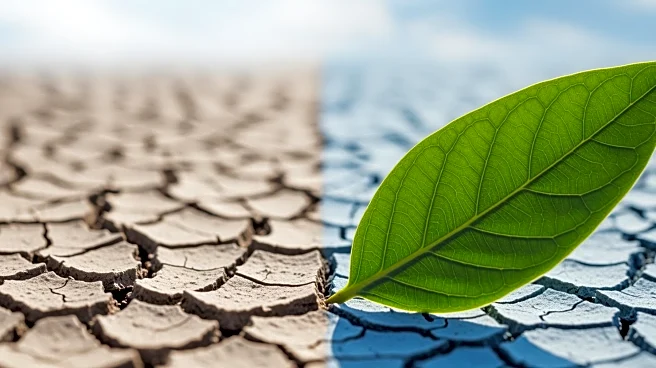What's Happening?
At COP30 in Brazil, Earth Information Day 2025 presented critical updates on climate science, emphasizing the importance of systematic observation for informed climate action. UNFCCC Executive Director
Simon Steil highlighted the role of science and data in building resilience, despite strained observation systems. WMO Executive Director Celeste Saulo reported record-breaking warm years and destructive weather, stressing the need for stronger science-policy bridges. The conference acknowledged the inevitability of overshooting the Paris Agreement's 1.5°C target, focusing on minimizing overshoot and returning emissions below this threshold by century's end.
Why It's Important?
The conference underscored the global disinvestment in meteorology and science, despite increasing weather disasters. This disinvestment threatens early warning systems crucial for states like Texas, which face severe weather impacts. The need for robust scientific infrastructure is critical for effective climate adaptation and disaster preparedness. Texas, with its leading research institutions, is positioned to contribute significantly to public climate information and policy development.
What's Next?
Subnational groups are encouraged to step up as global finance struggles. Texas Impact, an interfaith group, is actively engaging communities and lawmakers on public policy issues, emphasizing the importance of science-backed early warning systems. The conference calls for renewed investment in meteorology and climate science to support effective policy action and community resilience.
Beyond the Headlines
The conference highlights ethical considerations in climate policy, as global disinvestment in science could exacerbate human suffering. The role of faith-based organizations in advocating for justice and policy change is emphasized, moving beyond charity to address systemic issues affecting vulnerable populations.










